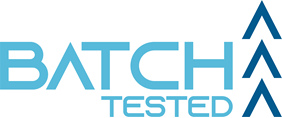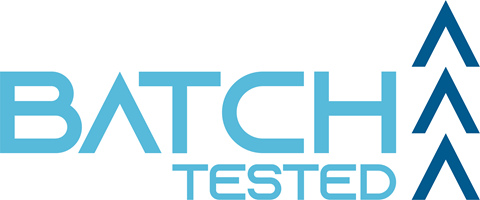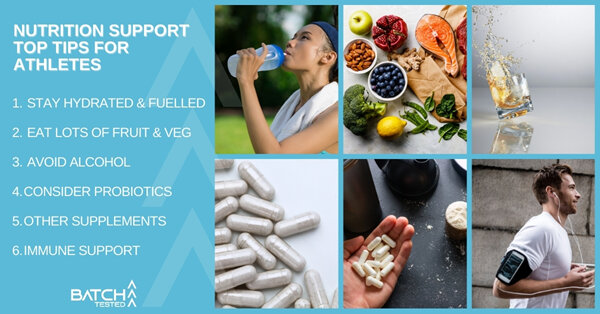OUR TOP 6 TIPS FOR SUPPORTING IMMUNE FUNCTION THROUGH NUTRITION FOR ATHLETES
by Kellie Hogan, Advisor/Advanced Sports Dietician
Prevention strategies are always the best method to prevent the spread of illness, therefore following health and hygiene protocols will always remain your best “defence” against illness. With this said, there are several other factors that can make some difference to how well your body can resist and fight illness and support your body’s immune functions Here are our top tips for athletes
1. ENSURE YOU ARE EATING AND HYDRATING ADEQUATELY FOR YOUR TRAINING LOAD.
Pay special attention to your protein needs across the day and especially in post training recovery.
Tailor your carbohydrate needs to the intensity of training sessions and daily volume.
Ensure you have carbohydrate on hand for during session consumption when required. A lack of carbohydrate can increase hormones like cortisol (a stress hormone) which can suppress immune function
Hydrate adequately during and after sessions and aim for a glass of water with each meal snack.
2. EAT PLENTY OF FRUITS AND VEGETABLES. THE MORE COLOURS THE BETTER.
Eat a variety of brightly coloured fruits and vegetables, as they contain micronutrients known to be beneficial for immune function. 2-3 serves of fruit and 2.5 cups of salads or vegetables per day is the (minimum) recommendation.
3. AVOID ALCOHOL
Avoid alcohol (especially excessive drinking) which has shown supresses the immune system. High alcohol intake often interferes with intake of high-quality nutrients.
4. CONSIDER PROBIOTICS
Probiotics have shown be a useful supplement in reducing the likelihood, severity, and duration of upper respiratory infection (e.g. viral cold and flu).
Your Accredited Sports Dietitian can guide you on the most appropriate and safest varieties for you.
5. OTHER SUPPLEMENTS
There is some evidence that specific supplements can be of assistance to immune health. For e.g. Vitamin D (if deficient), Vitamin C and Zinc. These may play a role at various stages of illness. For example, taking Vitamin C and Zinc at the very first signs of an upper respiratory illness may reduce the length and severity of the illness. Speak to your Accredited Sports Dietitian about the best protocol for use and safest options for you.
6. NON-NUTRITION FACTORS TO CONSIDER
Immune function is a large, complex area and there are many factors to consider for a well-functioning immune system. Getting adequate sleep, managing your training load & completing your recovery practices, and managing stress will also play an important role.











